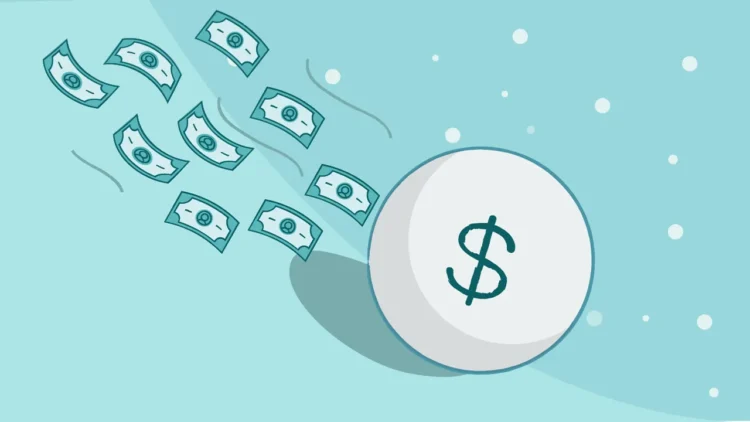The average American owes approximately $90,000 in debt. This often consists of things like mortgages, car loans, and student loans. While some people have no issues paying off their debt over time, some people find it overwhelming.
This can substantially impact your quality of life through the stress it causes. The good news is there are simple lifestyle changes you can make to improve how you handle your debt. Let’s explore how to get caught up on bills and take back control of your life.
Handle Your Highest Interest Rates
This is one of the most important steps to take when moving forward. High-interest rates will cause you to accrue a large amount of additional debt each month, and it’s essential to target them first. For example, let’s assume you owe $5,000 on a credit card with 10% APR and $4,000 on a credit card with 26% APR.
It wouldn’t make sense to pay both of them off at the same rate. You should focus on the one with higher interest first so you can avoid adding unnecessary interest to your debt.
If you have a mortgage or auto loan, you can refinance to lower the amount of interest you pay. In many cases, this can save you thousands of dollars.
When looking for a mortgage or auto refinance, ensure you research the provider before you make your decision. This will help ensure you find suitable terms for your situation.
Use the Snowball Repayment Method

The snowball repayment method requires you to pay off the smallest portions of your debt as soon as possible. For instance, this could involve tackling a credit card that you owe a few hundred dollars on before you start allocating more money to your student loans.
You then take the money you were going to use toward the smaller debt and put it toward your larger forms of debt. As you begin to pay off cards and accounts, you’ll feel motivated watching your total debt decrease. This can help you pay your debt sooner than you anticipate and regain control of your finances.
Avoid Missed Payments
Not only do missed payments prevent you from contributing to your debt, but they also tend to come with major consequences. Some people confuse missed payments with late payments, but there’s an important distinction to make.
Late payments occur when you miss a payment deadline but make the payment within the next billing cycle. Missed payments occur when the next billing cycle resolves without you having made the payment.
In this case, you could experience substantial fees and also damage your credit score. The last thing you want is to add unnecessary money to your debt, so keep this in mind when moving forward.
Establish Additional Income Sources

One of the best ways to pay off your debt faster is to find new ways to make money. You have plenty of flexibility regarding how you do so.
Some people pick up part-time jobs, while others sell their old possessions. You could even monetize one of your hobbies if there’s a market for it.
For example, you might have experience in restoring vintage electronics. Plenty of people would pay a substantial amount of money for a service like this.
Consolidate Your Debt
Many people overlook how useful debt consolidation can be. This involves receiving a lump sum to pay off credit cards and other loans. You then repay your new lender.
Debt consolidation is highly convenient since it allows you to make a single payment each month instead of numerous individual payments. Lenders will also offer a lower interest rate than the average rate across your debt, as well.
Imagine if you owed $15,000 across eight credit cards. Your average APR was 25%.
You could get a debt consolidation loan for $15,000 at 15% APR. The lender makes money from the interest you pay, but you pay far less in interest than you previously were.
Track Your Spending
You’ll likely be surprised at how much money you can save by tracking your spending. This will provide valuable insight into unnecessary costs, such as a gym membership you never use. From here, you can create a lean budget and stick to it as time passes.
Aim to save as much money as possible without substantially impacting your quality of life. If you cut too many corners, you could severely impact your mental health. Great ways to save extra money include:
- Cooking at home
- Purchasing used goods
- Reducing utility costs
- Buying generic products
- Switching insurance policies
Even saving $50 per month can add up over time. In this case, it’s an extra $600 you can contribute toward your debt per year.
Work with a Professional

If you can spare the money to hire a professional, they can easily help you get your life together. They have the tools and resources to identify and resolve areas of concern.
One of the best ways they’ll assist you is by illuminating your unnecessary spending. They can then provide alternatives to these expenses so you can continue to save.
When searching for someone to hire, consider their past reputation. They should have no shortage of positive feedback from previous clients.
They should also have plenty of experience working with people like you. This will help ensure they understand the nuances of your situation and can make the right decisions. Are you comfortable communicating with them?
You’ll get the best results by choosing a professional who you have no trouble talking to. With enough due diligence, you won’t have an issue finding the best solution.
Understand How to Get Caught up on Bills

While handling debt can be overwhelming at first, it’s not as intimidating as it seems with the right strategies. The info in this guide can help you learn how to get caught up on bills and get the best results for your situation.
Looking for other lifestyle info that can help you out in the future? Our blog has plenty of articles like this one you can benefit from. Be sure to check them out today!
 Hi Boox Popular Magazine 2024
Hi Boox Popular Magazine 2024



